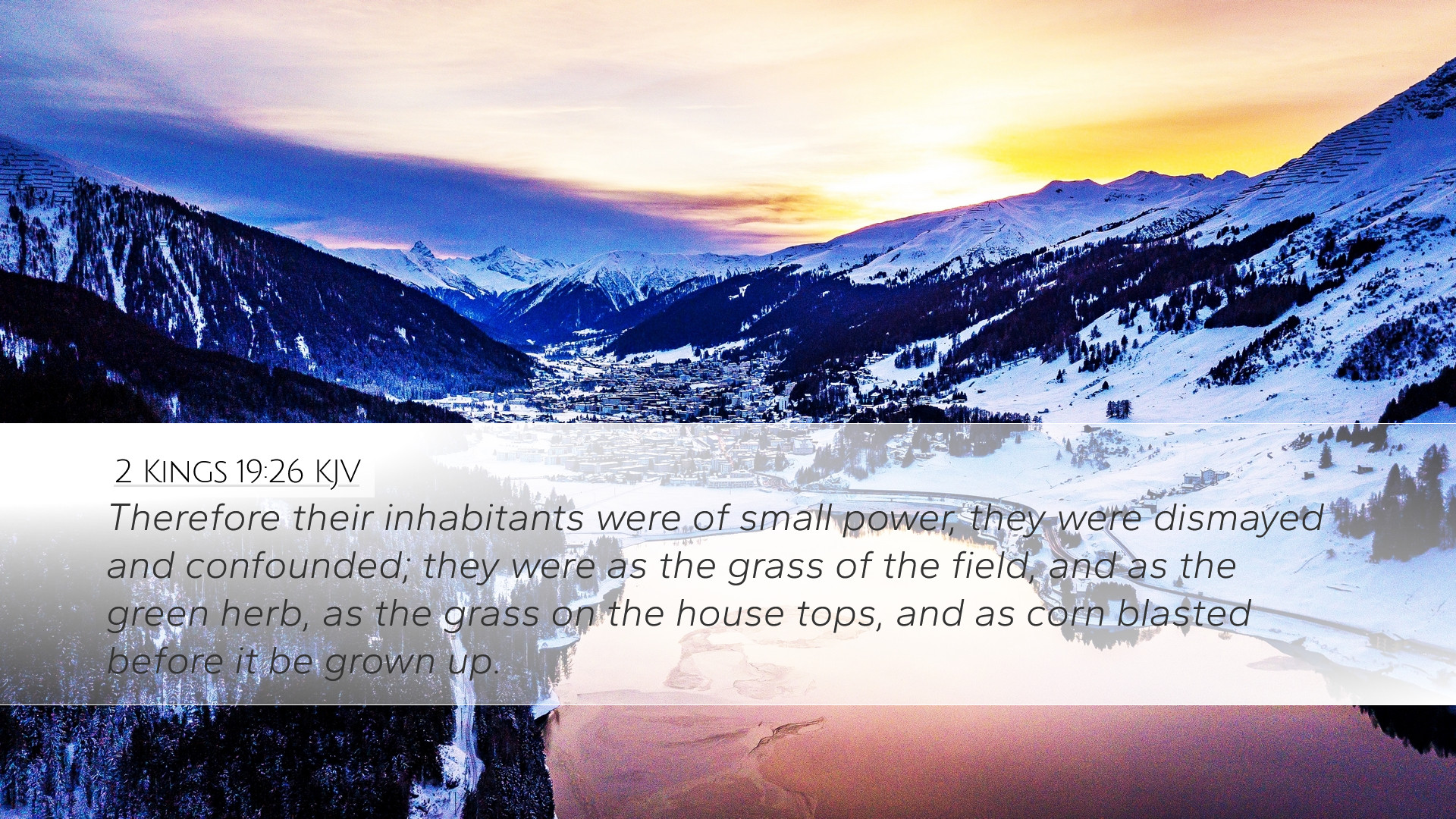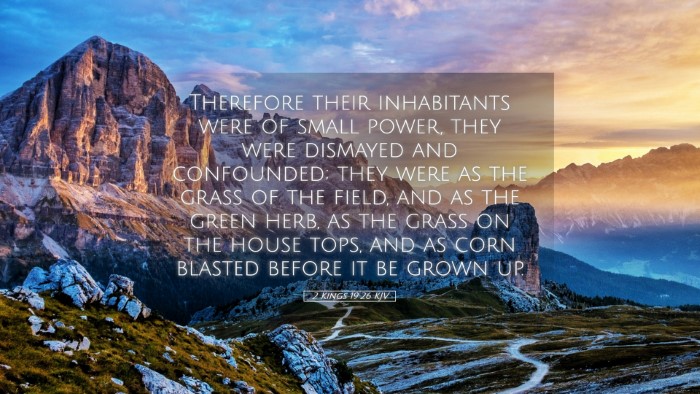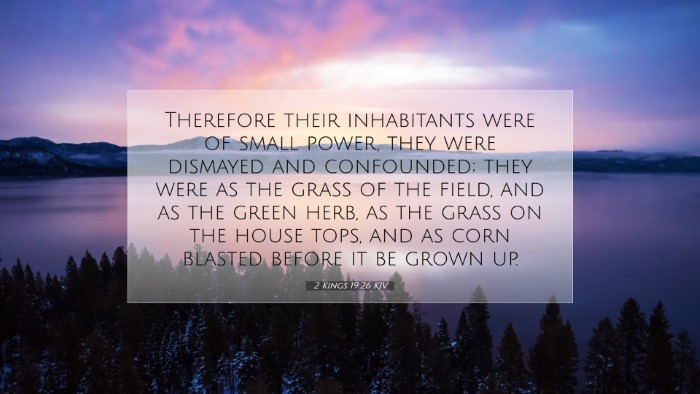Commentary on 2 Kings 19:26
Verse: "Therefore their inhabitants were of small power, they were dismayed and confounded: they were as the grass of the field, and as the green herb, as the grass on the housetops, and as corn blasted before it be grown up."
Contextual Background
This verse is part of the prophetic narrative concerning the Assyrian siege of Jerusalem and reflects God's sovereign control over nations. Hezekiah is portrayed as a faithful king who turns to God in the face of overwhelming military might. The passage illustrates the comparative weakness of Sennacherib's forces against the omnipotence of God.
Insights from Public Domain Commentaries
Matthew Henry's Commentary
Henry emphasizes the insignificance of the Assyrian army compared to the strength of God, stating that their inhabitants are depicted as weak and faint-hearted. He notes that just as grass is easily mowed down, so are these enemies of God. Their confounding situation, filled with dismay, signifies the inevitable downfall that God orchestrates for those who stand against Him.
Albert Barnes' Notes
Barnes comments that the phrase "small power" aptly describes the vulnerable position of the Assyrian forces. He draws a vivid comparison between them and the frail herbs of the field, subject to the will of a powerful storm or fire. His analysis highlights the divine perspective on human conflicts, emphasizing that what seems great in human terms is weak before God’s might. The imagery of grass on rooftops underscores their lack of depth and stability—apt metaphors for their ephemeral strength.
Adam Clarke's Commentary
Clarke aligns with the notion of the Assyrians being frightened and confused. He explains that God's judgment makes whole armies weak when they appease His wrath. He also links the comparison of the Assyrians to blasted corn to the inevitable decay that comes upon those chosen for destruction. Clarke’s analysis further underscores the transitory nature of human power when faced with the eternal authority of God.
Theological Implications
This verse encapsulates profound theological themes central to the biblical narrative. The power dynamics between nations reflect God's sovereign rule over all creation—a key tenet affecting both Old and New Testament theology.
- Divine Sovereignty: The mention of "small power" underscores the reality that God is ultimately in control. Every earthly power is subject to His governance.
- Judgment and Mercy: The fate of the Assyrians serves as a warning to those who oppose God. It implies that God can bring low any who defy His will, providing both comfort and fear to His people.
- Strength in Weakness: The imagery of frail herbs reinforces a biblical motif where God uses the weak to shame the strong, culminating in the profound paradox of the strength of God manifesting through weakness.
Pastoral Applications
For pastors, the situation in 2 Kings 19:26 is an encouragement to trust in God's power amid overwhelming odds. The assurance that God can render foes powerless inspires a life of faith and reliance on divine assistance rather than human strength.
Moreover, understanding the themes of judgment can compel congregations to consider their alignment with God’s will, fostering a spirit of repentance and a desire for holiness.
Concluding Thoughts
This verse serves as a reminder not only of the fragility of human power but also of the eternal reality of God's sovereignty. Reflecting on the insights from Henry, Barnes, and Clarke gives depth to our understanding and invites us into deeper theological reflection and prayer.


